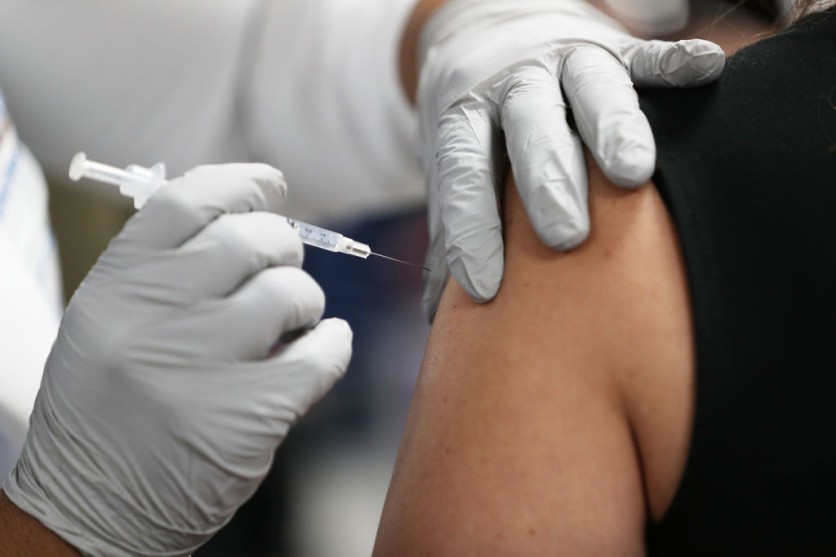The US Food and Drug Administration (FDA) has given the green light to newly developed COVID-19 vaccines of Pfizer and Moderna.

New COVID-19 Vaccines of Pfizer and Moderna Gain Approval From FDA
Amid a resurgence in COVID-19 cases, Albert Bourla, chairman and CEO of Pfizer, announced the FDA's approval of the company's new COVID-19 vaccine.
Unlike earlier booster shots, this newly formulated vaccine from Pfizer and its partner BioNTech excludes components of the initial COVID-19 variants that surfaced in 2020.
Instead, they are monovalent vaccines tailored to combat the omicron subvariant, aligning with the FDA recommendations released in June. This latest vaccine is tailor-made to combat the XBB.1.5 variant of omicron, which gained prominence during the previous winter in specific regions of the US.
Notably, The New York Times reported that this subvariant shares a closer genetic relationship with EG.5, which is now the most dominant strain in the US and currently constitutes 21.5 percent of COVID-19 cases.
Approving this season's COVID-19 vaccine is grounded in a comprehensive body of evidence, encompassing clinical, non-clinical, and real-world data that underscores the safety and efficacy of Pfizer and BioNTech's COVID-19 vaccines.
Pre-clinical studies reveal that this updated vaccine notably bolsters protection against various Omicron XBB-related sublineages, including XBB.1.5, XBB.1.16, and XBB.2.3, surpassing the Omicron BA.4/BA.5-adapted bivalent vaccine.
According to the FDA, these updated vaccines from Pfizer and Moderna are "expected to provide good protection against COVID-19 from the currently circulating variants."
Allowing Individuals Aged 6+ to be Eligible
Bourla noted that this development allows all individuals aged six months or older in the United States to be eligible for the current season's COVID-19 vaccine, even if they have never been vaccinated against COVID-19 before.
He expects the vaccine to become available in the coming days, pending recommendations from public health authorities. In the meantime, people can conveniently inquire about receiving both their COVID-19 vaccine and annual flu shot during the same medical appointment, saving time while fortifying their immunity against respiratory viruses.
The Verge reported that this FDA authorization means that the previous booster shots from Moderna and Pfizer are no longer permitted for use in the US.
The Centers for Disease Control and Prevention (CDC) is set to discuss recommendations for these new vaccines on Tuesday, and if the agency agrees to dole it out, the vaccines could be available to the public by the end of this week.
The CEO and Co-founder of BioNTech, Prof. Ugur Sahin, MD, expressed optimism about the updated vaccine's imminent availability. He emphasized that this updated vaccine would effectively target various sublineages related to Omicron XBB, which currently dominate the global landscape of COVID-19 cases.
Sahin noted that studies on confirmed viral infections indicate a seasonal pattern for COVID-19, with peaks occurring during the fall and winter, similar to other respiratory viruses.
In line with this, BioNTech's objective is to ensure that people worldwide will have access to COVID-19 vaccines tailored to the prevalent virus variants or sublineages.
The CDC's endorsement of this year's COVID-19 vaccines will pave the way for their distribution at various healthcare locations nationwide.
It's important to note that the vaccine continues to be accessible for most Americans without any direct costs. For additional details, visit www.vaccines.gov.

ⓒ 2026 TECHTIMES.com All rights reserved. Do not reproduce without permission.




